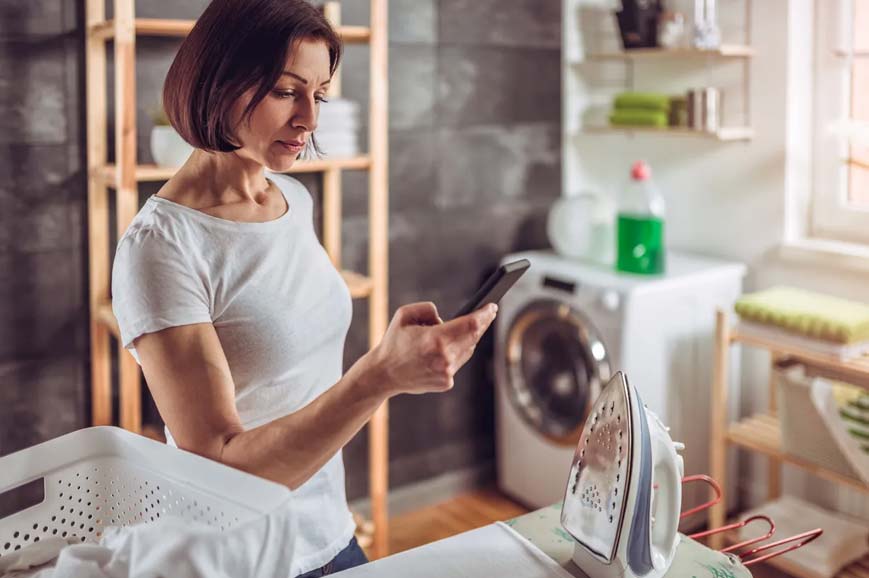Refrigerator Troubleshooting Checklist – Dependable Refrigeration & Appliance Repair Service Washing Machine Repair
Refrigerator Troubleshooting Checklist – Dependable Refrigeration & Appliance Repair Service Washing Machine Repair
Blog Article
The Ultimate Overview to Understanding Device Repair at Home
When your refrigerator stops cooling or your oven refuses to warmth, it can feel overwhelming. Understanding home appliance fixing at home can save you money and time. You'll find out to identify signs and symptoms, make use of necessary tools, and follow a systematic troubleshooting process. But prior to you begin, there are critical security precautions you need to take right into account. What are the most common problems, and how can you fix them? Allow's discover the basics.
Typical Home Appliance Issues and Their Signs
When your home appliances start acting up, it's important to recognize the indicators beforehand. Overlooking them can bring about bigger problems and costly repairs. If your refrigerator isn't cooling properly, you may observe warm places or condensation creating. This could suggest a stopping working compressor or a blocked vent.Your dishwasher might show problems through dirty meals or uncommon noises throughout cycles. If you hear grinding or clanking, it's time to investigate.A cleaning maker that won't spin or drain can leave you with soaked washing, recommending a blocked drain or a malfunctioning pump.Lastly, if your stove's temperature appears off or it takes permanently to pre-heat, you may be taking care of a defective thermostat. By remaining alert to these signs and symptoms, you can deal with problems before they escalate into significant repair services.
Crucial Devices for Home Appliance Repair
When you're taking on device repair services in your home, having the right tools is necessary. Fundamental hand tools like screwdrivers and pliers will assist you disassemble and repair various devices, while electric screening gadgets guarantee you're functioning safely with electrical wiring. Allow's review what you need to get going on your repair journey.
Basic Hand Tools
Having the right tools is crucial for reliable appliance repair work at home. Start with a reliable screwdriver collection, including both flathead and Phillips types, as screws are usual in appliance setting up. Pliers are additionally essential; they aid with gripping, twisting, and reducing wires or small elements. A set of needle-nose pliers can get to limited spots quickly. You'll need a good flexible wrench for tightening or loosening nuts and bolts. An energy knife is convenient for cutting through product packaging or insulation. Lastly, do not forget a strong workbench or surface area to safely arrange your tools and components. With these standard hand devices, you'll be well-prepared to tackle most home appliance repair work that come your means.
Electrical Screening Tools
Alongside standard hand tools, electrical testing tools play a necessary role in home appliance repair work. These devices help you diagnose electrical concerns and assurance home appliances function safely. A multimeter is crucial; it determines voltage, existing, and resistance, allowing you to determine issues rapidly. A non-contact voltage tester is one more essential, allowing you spot online cables without making straight call, enhancing your safety. Secure meters are terrific for gauging current circulation in cords without disconnecting them, conserving you effort and time. Additionally, circuit testers can promptly check if electrical outlets are functioning correctly. By using these tools, you'll enhance your troubleshooting process and boost your repair skills, making home appliance maintenance a lot less complicated.
Step-by-Step Overview to Diagnosing Home Appliance Issues
When your appliance acts up, it can be irritating, however detecting the issue does not need to be frustrating. You'll discover to determine typical problems and apply reliable repairing techniques. Let's walk through the actions to get your appliance back in functioning order.
Usual Appliance Troubles

Repairing Techniques Described

Fixing Significant Cooking Area Home Appliances: A Closer Look
Have you ever questioned how to take on common problems with your kitchen home appliances? Repairing significant cooking area devices like refrigerators, stoves, and dishwashing machines can be simpler than you think. Begin by identifying the trouble-- whether it's a refrigerator not cooling down or a stove that will not heat. Usually, an easy reset or inspecting the power resource can solve the issue.For refrigerators, clean the condenser coils and examine the door seals. If your stove's not heating, inspect the burner and thermostat. Dishwashing machines could simply need a tidy filter or a reset to obtain them back at work. Always unplug the home appliance before diving into repair services to ensure your safety.Don' t forget to seek advice from the customer guidebook for specific repairing pointers related to your version. With a little persistence and the right tools, you can with confidence tackle device repairs and conserve money in the process!

Troubleshooting Washing Appliances: Tips and Techniques
When your washing appliances begin breaking down, it can really feel frustrating, however fixing them doesn't have to be a problem. Start by checking the power supply. Validate the appliance is connected in and the outlet is functioning. Next off, evaluate the door or cover switch; a damaged button can stop the device from operating.For washers, if it's not rotating, check for unbalanced lots. Redistributing the clothes could solve the issue. If your dryer isn't home heating, tidy the lint filter and inspect the air vent for blockages.Listen for uncommon sounds; they can show a problem. If your appliance is dripping, examine the tubes for cracks or loose links. Document any type of mistake codes shown on digital screens, as they can direct you in recognizing the issue. Consult the individual manual for details repairing ideas associated to your model.
Security Preventative Measures to Take Throughout Repairs
Before you start any kind of appliance repair work, it's necessary to prioritize safety and security to stop crashes or injuries. First, unplug the appliance or shut off the breaker to ensure no power reaches it while you function. Usage protected tools to minimize the risk of electric shock. Use security goggles and gloves to secure yourself from sharp sides or debris (Lg Dryer repair near me Dependable Refrigeration & Appliance Repair Service).Make specific your work space is neat and well-lit, so you can see what you're doing. Maintain kids and pets away from the location to stay clear of diversions and prospective hazards. If you're managing gas home appliances, be added mindful; check for leakages before proceeding.Take your visit here time, and don't hurry with repair work. If you feel unclear regarding any step, it's better to stop and research than to think. read here Adhering to these safety measures will assist develop a much safer environment for your DIY home appliance fixing project
When to Call an Expert for Aid
How do you recognize if it's time to contact an expert for device repair services? If you've tried basic troubleshooting without success, it's a clear indication. If your appliance still will not begin or reveals uncommon noises after resetting it, do not think twice to seek specialist help.When you notice leaks, smoke, or melting smells, focus on safety and security and call a professional promptly. These concerns can result in even more considerable damage or pose risks to your home.Also, if your device is under warranty, contacting a specialist is often the most effective path. They can assure that repairs won't nullify your warranty, conserving you money in the lengthy run.Finally, if you're not sure or uncomfortable with complex fixings, it's smart to leave it to the specialists. Bear in mind, dealing with challenging issues without the right expertise can lead to costly errors. Trust a specialist when unsure!
Regularly Asked Questions
Just How Can I Avoid Appliance Issues in the Future?
To stop device issues in the future, you need to do routine upkeep, check for damage, tidy filters, and prevent overloading. Remaining aggressive will help expand their life expectancy and maintain them running efficiently.
What Are the A Lot Of Common DIY Home Appliance Fixing Mistakes?
You may ignore safety precautions, miss troubleshooting actions, or utilize inaccurate devices when trying DIY home appliance repairs. Hurrying the procedure or ignoring maker standards can bring about more considerable issues and costly mistakes. Keep client and informed!
Exactly how Do I Know if a Component Demands Substitute?
You can tell if a part needs substitute by inspecting for uncommon sounds, leakages, or inconsistent efficiency. If the device struggles to run correctly or shows noticeable damage, it's likely time for a replacement.
Can I Utilize Generic Parts for Home Appliance Services?
Yes, you can use common components for device fixings, yet determine they work - Kenmore Dryer Repair Oro Valley Dependable Refrigeration & Appliance Repair Service. Generic components may conserve you money, go to this website yet they might impact performance or durability, so evaluate your options meticulously prior to deciding
What Warranties Cover Home Appliance Fixes?
The majority of appliance guarantees cover repair services for producing defects, however they usually exclude damages from misuse. Examine your service warranty terms very carefully, as some could call for utilizing licensed specialists and initial components for coverage to remain legitimate.
Report this page